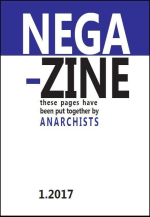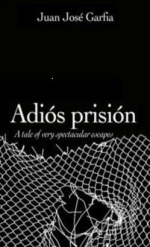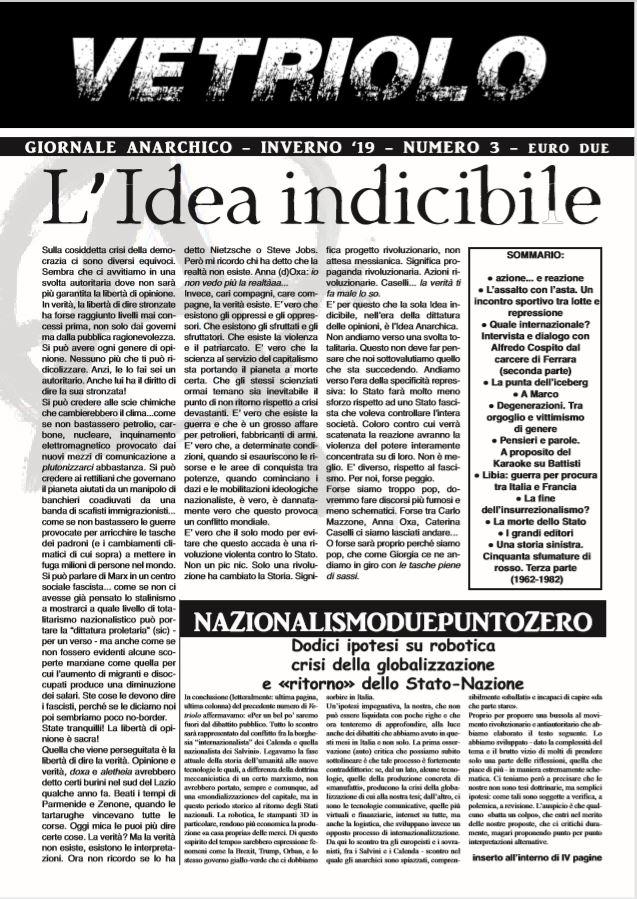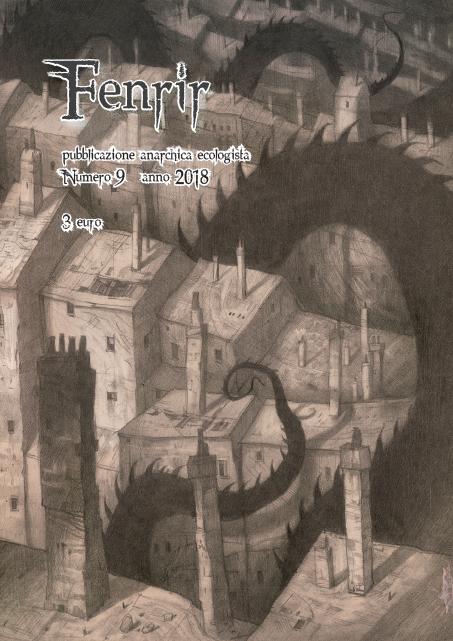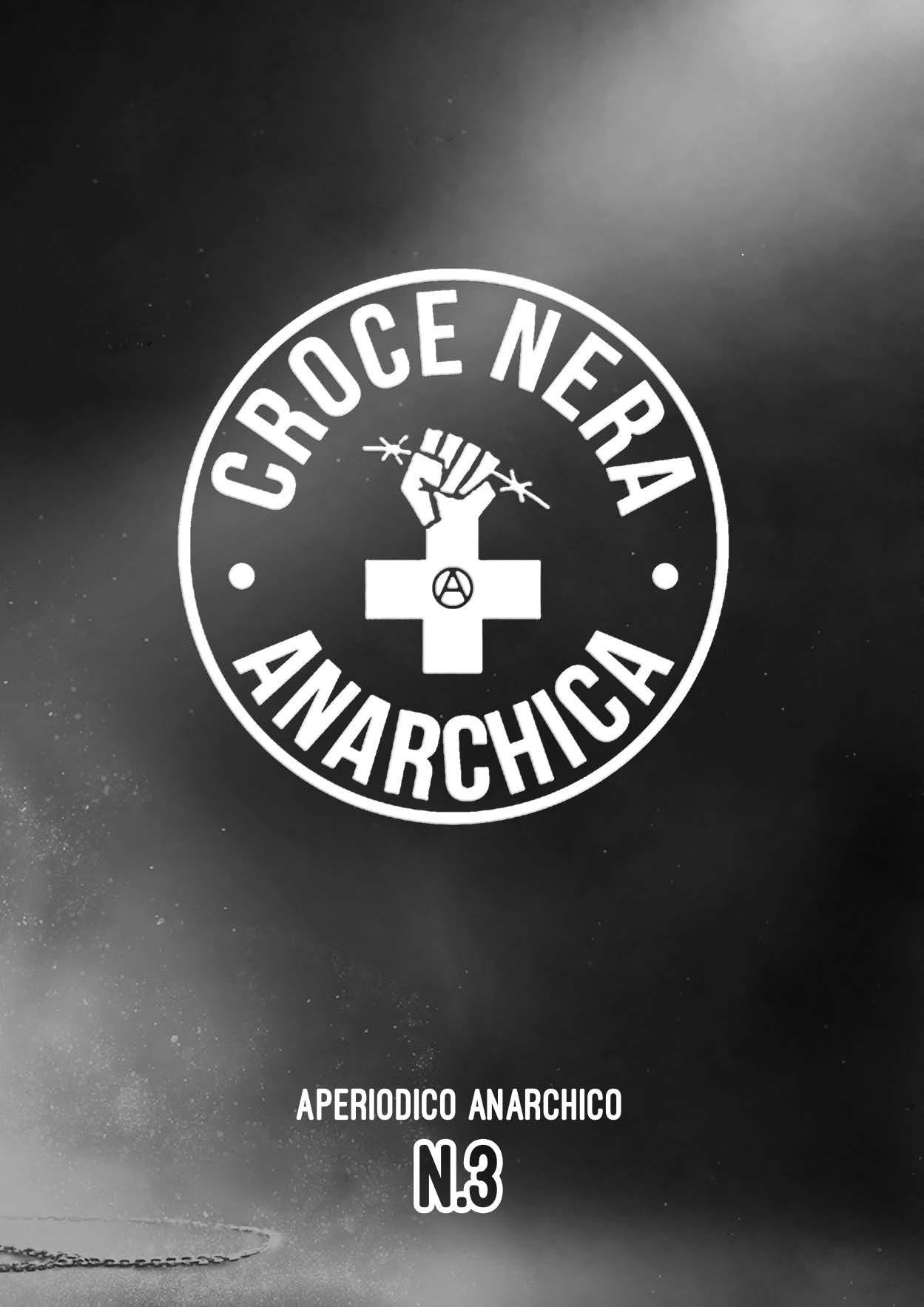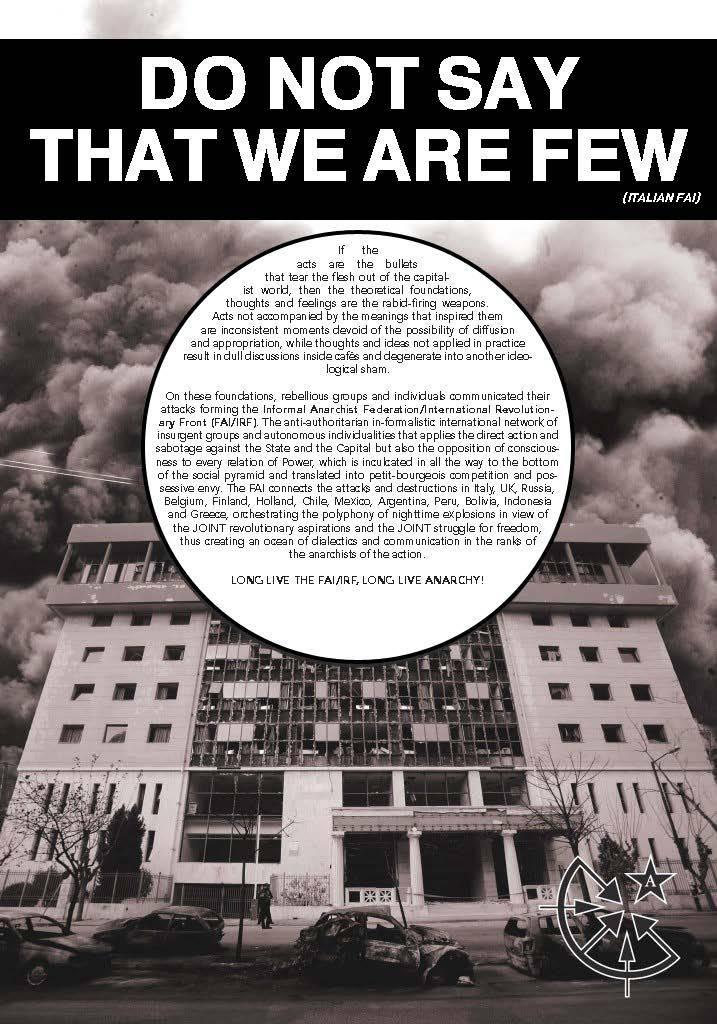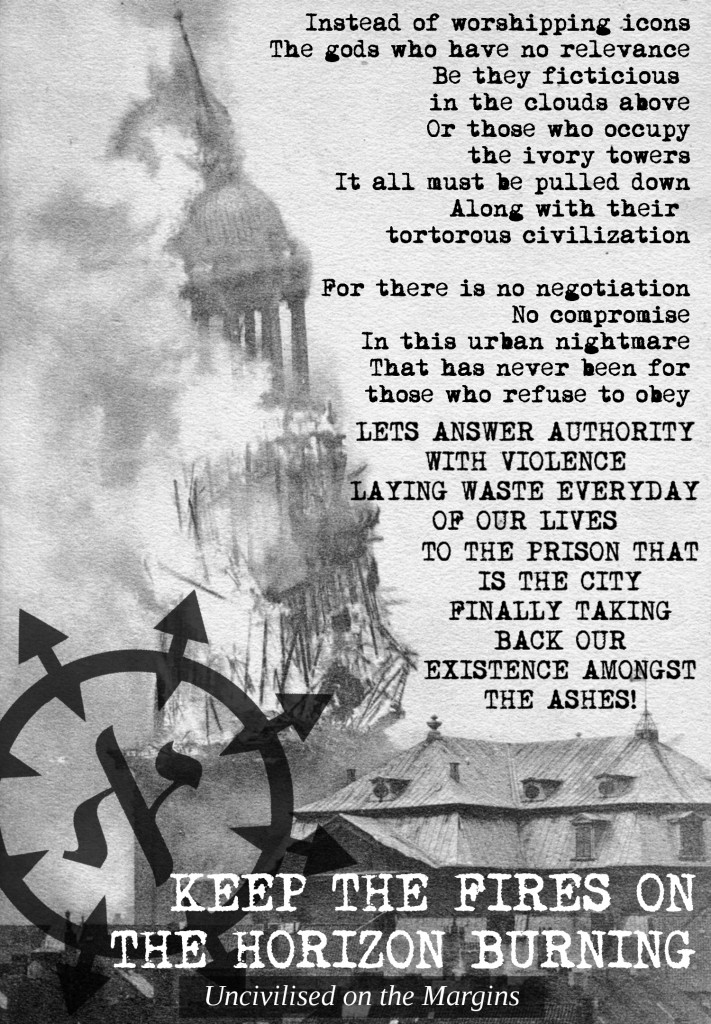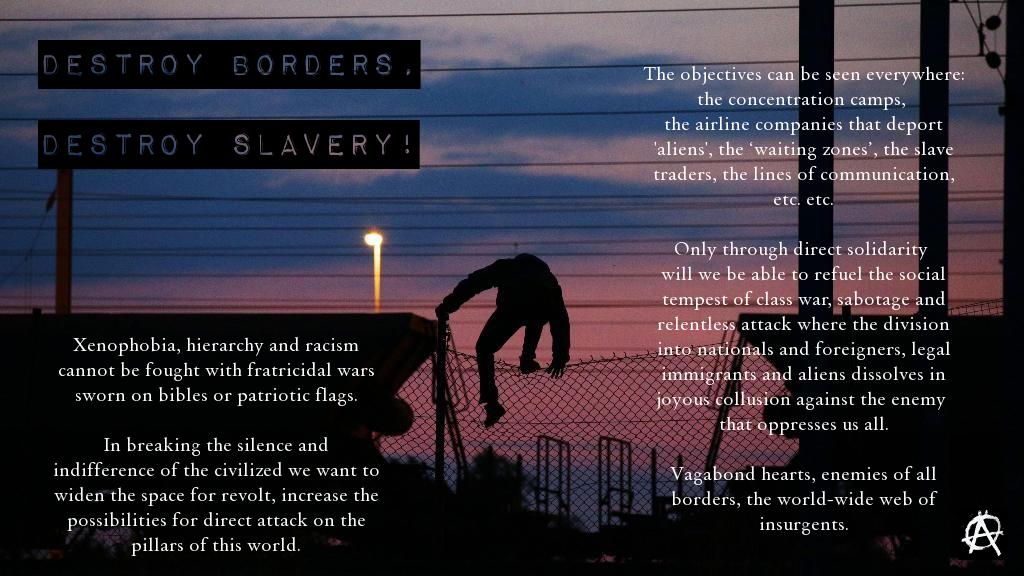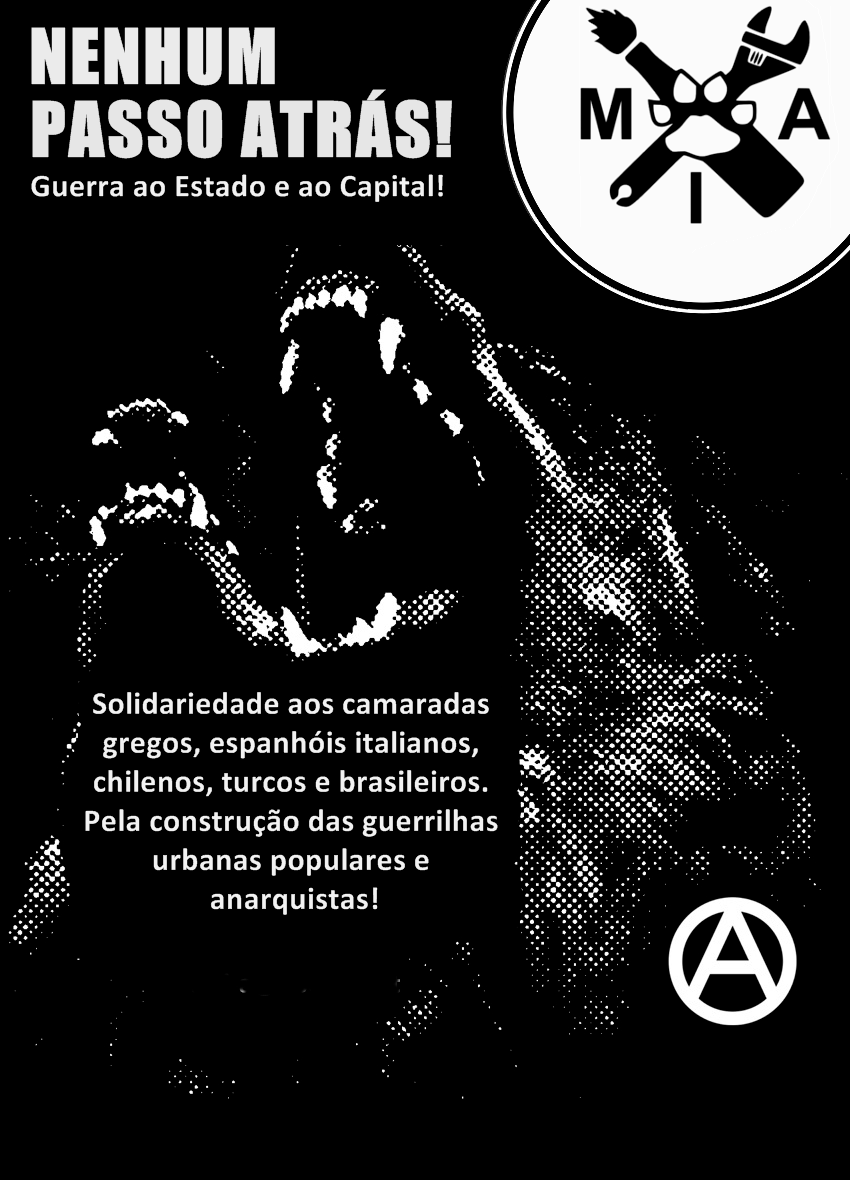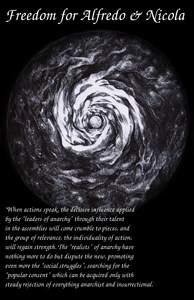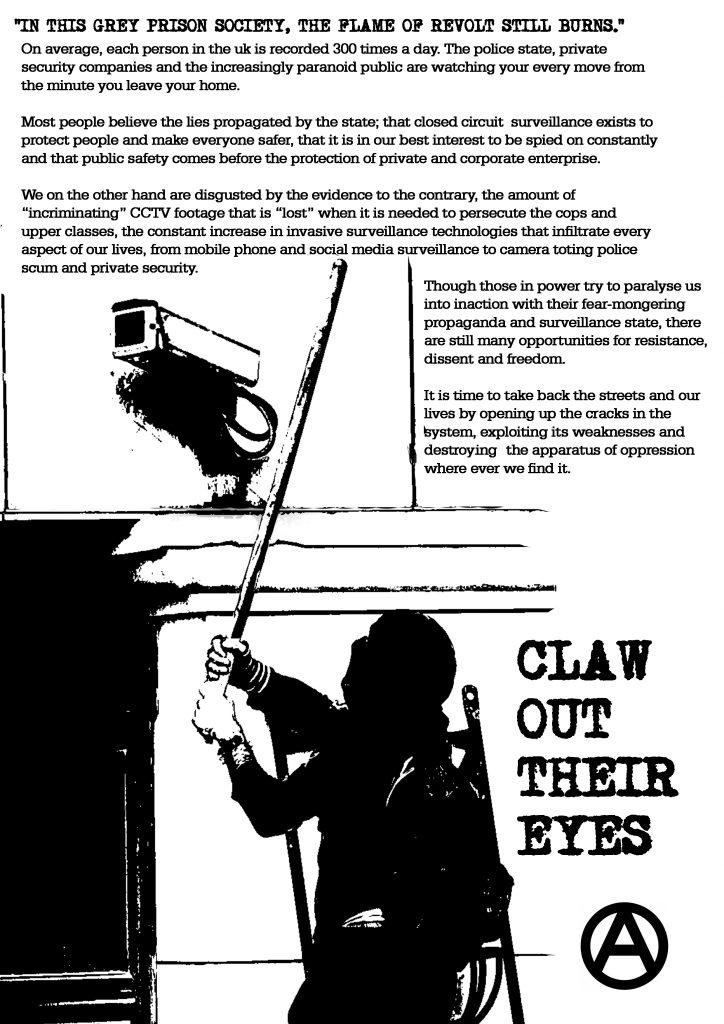Elephant Ed.
La passione per la libertà Intervista a Jean Weir [it]
Allora, com’è che ti sei fatta arrestare, il 19 settembre 1994, insieme ad altri quattro compagni (Antonio Budini, Christos Stratigopulos, Eva Tziutzia e Carlo Tesseri) con l’accusa di rapina a mano armata alla Cassa Rurale di Serravalle d’Ala (TN), in Italia? Qual è stata l’evoluzione della tua vita che ti ha portato a quella situazione?
Com’è che mi sono fatta arrestare quel 19 settembre 1994? Beh, ovviamente non si è trattato di un “crimine perfetto”... Un paio di persone del posto hanno visto dei tizi scavalcare una staccionata in località Chizzola e andare nei boschi su per le montagne: ne è seguita una massiccia “caccia all’uomo” e nel giro di qualche ora siamo stati tutti presi. Ma non credo sia questo ciò che intendevate. Mi avete chiesto come la mia vita è evoluta fino portarmi a quel momento. Cercherò di rispondere a questa domanda, che sembra implicare il fatto che quello sia stato una specie di momento culminante verso il quale la mia vita avrebbe teso.
10 ott 2018 Leggi il testo completo...
UK: Negazine no. 1 / 2017 – A new journal published by anarchists [it]
When reading the following pages it would be well to put everything that we already know about technology aside. Indeed, what knowledge or hypothesis passed off as certainty makes up the scientific aspect of technology? Not much.
Negazine is not an easy read. On the contrary, reading it requires a certain level of effort and the will to put oneself on the line. And it couldn’t be otherwise, given the subjects it goes into. Negazine offers neither certain answers nor slogans to write on the next wall.
16 mar 2018 Leggi il testo completo...
Elephant Ed. : Juan José Garfia — Adiós Prisión. The story of the most spectacular escapes [en]
Original title: ADIÓS PRISIÓN. El relato de las fugas mas espectaculares, First Spanish edition: Txalaparta ed., Tafalla, October 1995
Italian Edition: ADIÓS PRISIÓN. Il racconto delle fughe più spettacolari Biblioteca Dell’Evasione, August 2008
Translated by Barbara Stefanelli and Jean Weir in collaboration with Antonia and other accomplices
Introduction to the English edition
As soon as I finished reading Adiós Prisión in the Italian edition published in August 2008 I felt the urge to translate it. It is one of those books that you do not want to finish. You cannot get it out of your head, you want to delve deeper and deeper into it.
This book talks about freedom, the urgent need for freedom and the impossibility of living without it. This book says that freedom must be taken back at all costs and that is exactly what the protagonists of Adiós Prisión, Spanish prisoners under the infamous FIES regime, did: they took back their freedom using all means necessary, challenging the impossible, ready to kill for it if necessary. There is no room for political correctness or abstract morals concerning human life here: if the screws keep you locked up and your life, even in its most banal and insignificant aspects, is at the mercy of their caprice, violence and stupidity, your only choice is to eliminate them if they put themselves between you and your freedom.
The protagonists of this book are not passive subjects of the prison system, on the contrary they are well aware of the fact that prison is the absolute negation of human dignity. As FIES prisoners they are experiencing directly how human beings will never adapt to life in prison, and their most impelling need is to escape in order to put an end to a situation that is unendurable.
The FIES, Ficheros de Internos de Especial Seguimento (record of prisoners under special observation) was inaugurated by the Spanish prison system in 1991 in order to further punish and control prisoners who had been carrying out revolts in the Spanish jails over the previous decades. Two amnesties were granted following the dictator Franco’s death, one in 1976 and one in 1977, but they were systematically denied to a large number of prisoners, the ‘social’ prisoners, whereas many of those declared or considered ‘political’ were released. It was then that revolts started breaking out continuously, not only for the amnesty to be extended to all prisoners but also against the unbearable conditions inside the jails (torture, beatings, overcrowding, rotten food, no medical attention for prisoners affected by medical conditions, and so on). Prison infrastructures were smashed and destroyed as a result of the frequent riots that occurred in most Spanish prisons in the years following Franco’s death. The FIES was created with the precise aim of keeping a record of the most rebellious prisoners of those years. However, it was not just an archive for gathering information about hot-headed prisoners: along with its inauguration special wings were being built inside prisons all over Spain to hold those considered particularly dangerous by the prison system. In the special wings the cells were tiny, the walls were completely bare, the toilet was a hole in the floor, the bed was made of iron, and it was impossible to see out through the barred window. Prisoners spent days, months, years locked up in these dungeons and were allowed to keep nothing with them as their personal possessions were seized on entry to the wing. The screws were always ready to provoke, search and beat prisoners, knowing that they could count on total impunity and the
...
22 feb 2017 Leggi il testo completo...
Nuovo archivio delle edizioni in lingua inglese “Elephant Editions” (Lavori in corso) [it]
Quando le parole si mescolano con la passione di approfondire la nostra comprensione della realtà, diventano armi indispensabili per l’auto-organizzazione della lotta contro tutto quello che ci opprime. Non rimangono solo sulla carta – o sullo schermo – ma penetrano nei cuori e spiriti ribelli, donando coraggio e risolutezza – se molti di noi non reagiscono contro ciò che viola la nostra dignità spesso non è per mancanza di coraggio, ma perché semplicemente non sappiamo da dove iniziare.
Dobbiamo liberare la realtà dalla dimensione fittizia creata dai media, per renderla tangibile ed esposta all’attacco. Per poter raggiungere questo abbiamo bisogno di conoscere il nemico in tutte le sue forme, incluse quelle che giacciono nascoste dentro di noi, accovacciate, aspettando di balzare per spingerci indietro nell’ovile del consenso o dissenso governabile. Leggere certi testi diventa un incontro, le tensioni che sentiamo bruciare dentro diventano più chiare, e diviene più facile assimilarle per passare all’attacco.
Abbiamo bisogno anche di analisi – dell’economia, delle “nuove” tecnologie. Senza le nostre, proprie idee, analisi e progettualità non siamo nulla, mere astrazioni che costruiscono castelli in aria.
Attacco e teoria dell’attacco, che è la stessa cosa per gli anarchici, rappresentano gli elementi essenziali di lotta, senza i quali esisterebbe solo di nome. Perciò, abbiamo bisogno anche della critica dei metodi anarchici: delle fisse organizzazioni anarchiche di sintesi, del sindacalismo o delle federazioni che poggiano sui numeri, dato che sono limitative e anacronistiche in termini di attacco. Nello stesso tempo, abbiamo bisogno di una critica delle organizzazioni clandestine fisse e dell’“attacco al cuore dello Stato”, prevalenti negli anni Settanta, e di valorizzare i piccoli gruppi basati sull’affinità, sull’agire diretto, per trasformare la realtà senza nessun senso di sacrificio, ma per la propria gioia e libertà immediata, nel contesto della libertà per tutti.
L’anarchismo non è un concetto storico o una teoria politica, è un modo di concepire la vita, “una scommessa che dobbiamo giocare giorno dopo giorno”, e non consideriamo la storia come fondamento – o “fare la storia” l’obiettivo – della nostra azione. Tuttavia, gli anarchici possiedono un ricco e passionale passato, o meglio lascito, che diventa nostro solo quando lo incontriamo attraverso il proprio confronto con l’autorità e il dominio. Lontano dai tediosi tomi scolastici, le vite dei compagni del passato, le loro idee, i loro metodi e le loro azioni, le loro lotte e le conseguenze (spesso il carcere o addirittura la morte) vivono e possiedono per noi un significato oggi, mentre cerchiamo di lottare contro le condizioni del capitale post-industriale. Per questo motivo abbiamo pubblicato, e continueremo, anche testi dei o sugli anarchici e ribelli del passato, che hanno ancora oggi molto da dire quando si incontrano attraverso una dimensione di scambio di idee ed esperienze tra chi legge e chi scrive.
Quindi, Elephant Editions è semplicemente una collezione di testi, un contributo nel grande calderone di sogni, idee e sperimentazioni per coloro che hanno deciso di trasformare i loro desideri in realtà, adesso, senza rimandare.
Novi arhiv izdanja na engleskom jeziku “Elephant Editions” (Radovi u toku)
Kada se riječi pomiješaju sa strašću za produbljivanjem našeg shvaćanja realnosti, one postaju neophodno oružje za samo-organizaciju borbe protiv svega što nas ugnjetava. Ne ostaju na papiru – ili na ekranu – već prodru u pobunjenička srca i duhove, pružajući hrabrost i odlučnost – jer ako mnogi od nas ne djeluju protiv onoga što vrijeđa naše dostojanstvo često nije zato što im nedostaje hrabrosti, nego jednostavno jer ne znamo odakle početi.
Trebamo osloboditi realnost od fiktivne dimenzije koju su stvorili mediji, kako bi postala opipljiva i izložena napadu. Da bi to postigli trebamo upoznati neprijatelja u svim njegovim oblicima, uključujući i one koji leže sakriveni unutar nas, šćućureni, čekajući da iskoče i povuku nas nazad u tor suglasja ili podatnog otpora. Čitanje određenih tekstova postaje susret, tenzije koje osjećamo da gore u nama postaju jasnije, čime ih lakše asimiliramo kako bi prešli u napad.
Trebamo i analize – ekonomije, “novih” tehnologija. Bez naših vlastitih ideja, analiza i projekata mi smo ništa, puke
...
1 feb 2017 Leggi il testo completo...


